For many people, food is more than fuel; it’s a source of comfort, tradition, and joy. But what happens when eating—even something simple like a sandwich or a salad—leads not to satisfaction, but to a sense of sadness, hopelessness, or emotional numbness? If you’ve ever found yourself saying, “eating anything makes me depressed,” you are not alone. This phenomenon, though not widely discussed in casual circles, is gaining increasing recognition in both scientific and nutritional communities. Understanding why certain individuals experience depressive symptoms after meals—and identifying which foods that cause depression may be contributing to this effect—can offer a path toward healing and improved mental health.
You may also like: How to Stop Emotional Eating and Regain Control: Mindful Nutrition Strategies That Support a Healthier Lifestyle
While emotional eating and dietary-related mood swings are not new topics, the connection between specific dietary choices and sustained or immediate shifts in mental wellness remains an evolving area of research. The concept that eating anything makes me depressed touches on complex interactions between food sensitivities, gut health, blood sugar fluctuations, and psychological associations with food. When we peel back the layers, it becomes clear that the foods we eat can impact neurotransmitters like serotonin and dopamine, hormones like insulin and cortisol, and the delicate balance of gut microbiota—all of which have a significant bearing on our mood and emotional well-being.
This article explores the underlying reasons why eating can lead to emotional downturns, identifies specific foods that cause depression in susceptible individuals, and discusses scientifically grounded strategies for building a mood-supportive diet. We also look at how lifestyle factors such as stress, sleep, and exercise interplay with nutrition to affect mental health, offering a holistic view of the mind-body-food connection.
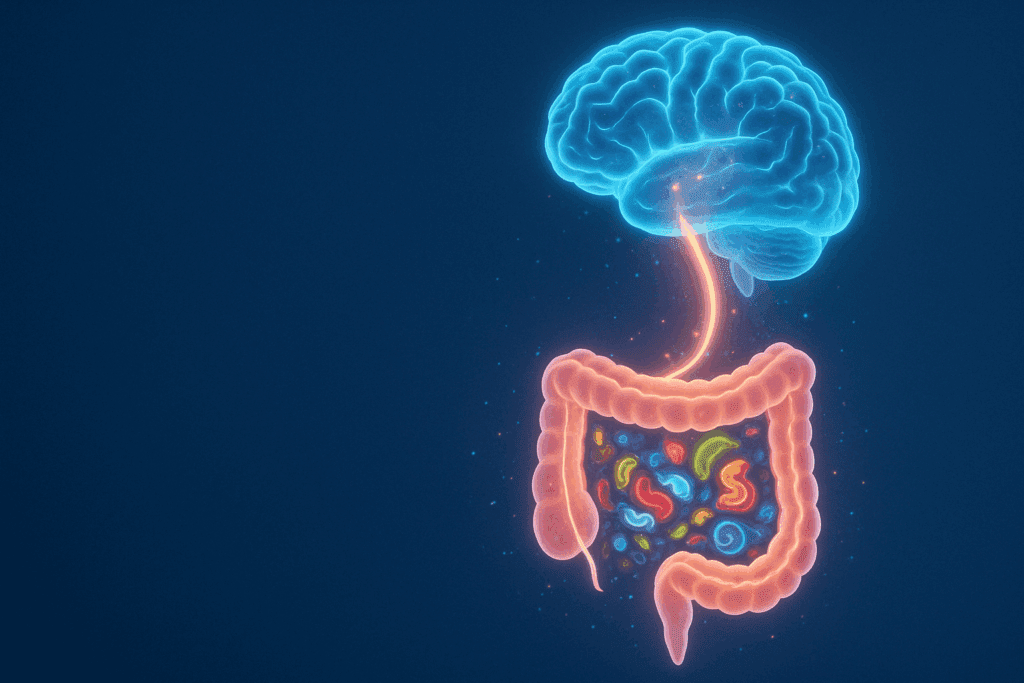
The Gut-Brain Connection: Where Mood and Meals Intersect
Recent advances in neuroscience and nutritional psychiatry highlight the deep connection between our digestive system and mental health. Often called the “second brain,” the gut houses an intricate network of neurons known as the enteric nervous system, which communicates directly with the central nervous system via the vagus nerve. This two-way communication system is what allows the gut to send signals to the brain and vice versa, impacting mood, cognition, and stress responses.
This relationship is further influenced by the gut microbiome—the trillions of microorganisms that inhabit the gastrointestinal tract. A diverse and healthy microbiome produces essential neurotransmitters such as serotonin (about 90% of which is synthesized in the gut), dopamine, and gamma-aminobutyric acid (GABA), which are all vital for emotional regulation. Disruptions in the gut microbiota—due to poor diet, antibiotics, or chronic stress—can result in altered neurotransmitter production and increased systemic inflammation, both of which are associated with depressive symptoms.
When someone reports that eating anything makes me depressed, it could be a red flag that their gut health is compromised. Common culprits include diets high in processed foods, added sugars, and artificial additives—all of which can damage gut lining and promote the growth of harmful bacteria. These imbalances can reduce the production of mood-enhancing chemicals, leading to post-meal emotional crashes or persistent low mood.
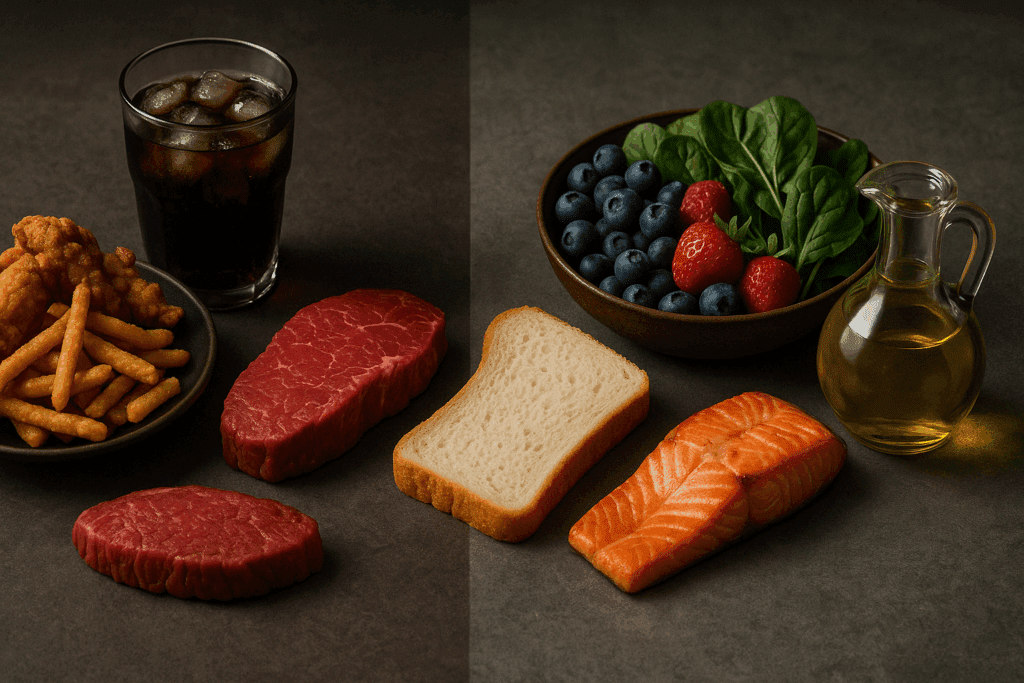
Inflammatory Foods and Their Mental Health Implications
The concept of inflammation often brings to mind swollen joints or visible signs of infection, but chronic low-grade inflammation can silently affect the brain as well. In fact, emerging research supports a growing link between systemic inflammation and depression, particularly inflammation triggered by diet.
Certain foods—especially those common in the modern Western diet—are known to promote inflammation. Refined carbohydrates, deep-fried foods, red and processed meats, and sugary beverages are all associated with elevated levels of pro-inflammatory cytokines. When consumed regularly, these foods may contribute to neuroinflammation, disrupting the function of brain regions involved in mood regulation, such as the prefrontal cortex and hippocampus.
In individuals who find that eating anything makes me depressed, it’s worth examining dietary patterns for frequent intake of these inflammatory foods. The connection between inflammation and mood disturbances is so robust that some researchers now refer to certain forms of depression as “inflammatory depression.” Managing inflammation through dietary choices—by prioritizing anti-inflammatory foods like leafy greens, fatty fish, berries, and olive oil—may provide meaningful relief for those struggling with diet-related mood shifts.
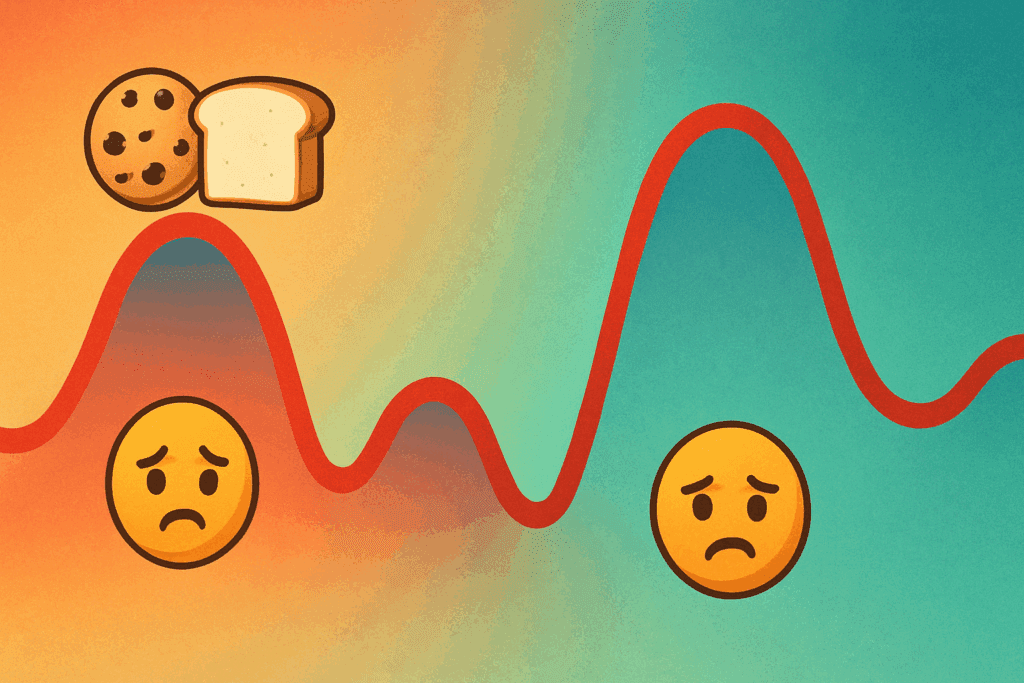
Blood Sugar Instability: The Hidden Rollercoaster Behind Mood Crashes
One of the less obvious but highly impactful mechanisms linking food and mood is blood sugar regulation. When we eat, carbohydrates are broken down into glucose, which serves as the body’s primary energy source. However, refined carbohydrates—such as white bread, pastries, and sugary cereals—cause rapid spikes in blood glucose, followed by equally rapid drops.
These blood sugar highs and lows can trigger mood instability, irritability, fatigue, and in some cases, feelings of anxiety or depression. The brain is especially sensitive to fluctuations in glucose supply, and low blood sugar (hypoglycemia) has been directly linked to symptoms that mimic or exacerbate clinical depression. People who report that eating anything makes me depressed may unknowingly be caught in this cycle, especially if their meals are dominated by high-glycemic foods.
Moreover, insulin resistance—a condition where the body becomes less effective at processing glucose—has been associated with higher rates of depression. For those with prediabetes, Type 2 diabetes, or metabolic syndrome, managing blood sugar through balanced meals and low-glycemic foods can play a critical role in stabilizing mood and preventing post-meal emotional slumps.
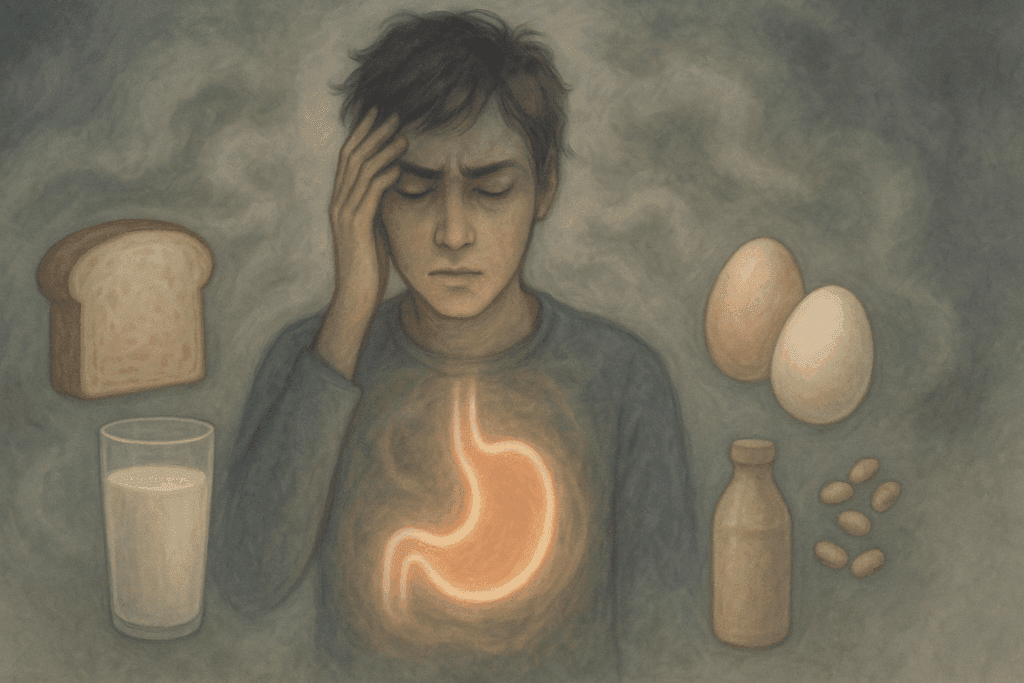
The Role of Food Sensitivities and Allergies
Sometimes the problem isn’t just what you’re eating, but how your body responds to it. Food sensitivities and allergies can provoke immune responses that extend beyond physical symptoms like bloating or hives. In some individuals, these reactions manifest as mood disturbances, fatigue, or cognitive fog—often within hours of eating the offending food.
Common culprits include gluten, dairy, soy, corn, eggs, and certain food additives like monosodium glutamate (MSG) or artificial sweeteners. For individuals who say that eating anything makes me depressed, it may be worthwhile to explore whether hidden food sensitivities are contributing to their symptoms. Unlike food allergies, which produce immediate and often severe responses, sensitivities can be more insidious and harder to identify without an elimination diet or testing under professional supervision.
It’s also important to consider that sensitivities may be exacerbated by intestinal permeability, sometimes referred to as “leaky gut.” When the gut lining is compromised, larger food particles can enter the bloodstream and trigger immune responses that affect mood-regulating systems. Restoring gut integrity through a diet rich in fiber, probiotics, and nutrient-dense whole foods may reduce reactivity and improve emotional well-being over time.
Which Foods Are Most Likely to Contribute to Depression?
Though individual responses vary, research consistently points to several categories of foods that cause depression or are strongly associated with depressive symptoms. Processed foods rank high on this list due to their high content of trans fats, sugars, and preservatives. Fast food, packaged snacks, frozen entrees, and sweetened beverages often lack essential nutrients and may negatively influence both gut health and brain function.
Another category includes refined grains, which are stripped of their fiber and nutrient content. White rice, white pasta, and pastries fall into this group and have been shown to promote blood sugar volatility, which—as noted—can have significant consequences for mood stability. Additionally, alcohol and caffeine, while socially accepted and commonly consumed, may also worsen depressive symptoms in sensitive individuals. Alcohol is a known depressant that can interfere with sleep and neurotransmitter activity, while excessive caffeine can lead to anxiety, restlessness, and eventual mood crashes.
Equally concerning are artificial sweeteners like aspartame and sucralose, which have been implicated in altering brain chemistry and gut flora. Though the evidence is still emerging, anecdotal and preliminary research suggests that these substances may contribute to the emotional numbness or sadness some people feel after eating. Identifying personal trigger foods and gradually replacing them with whole, nutrient-dense alternatives can be a powerful way to reclaim emotional balance.
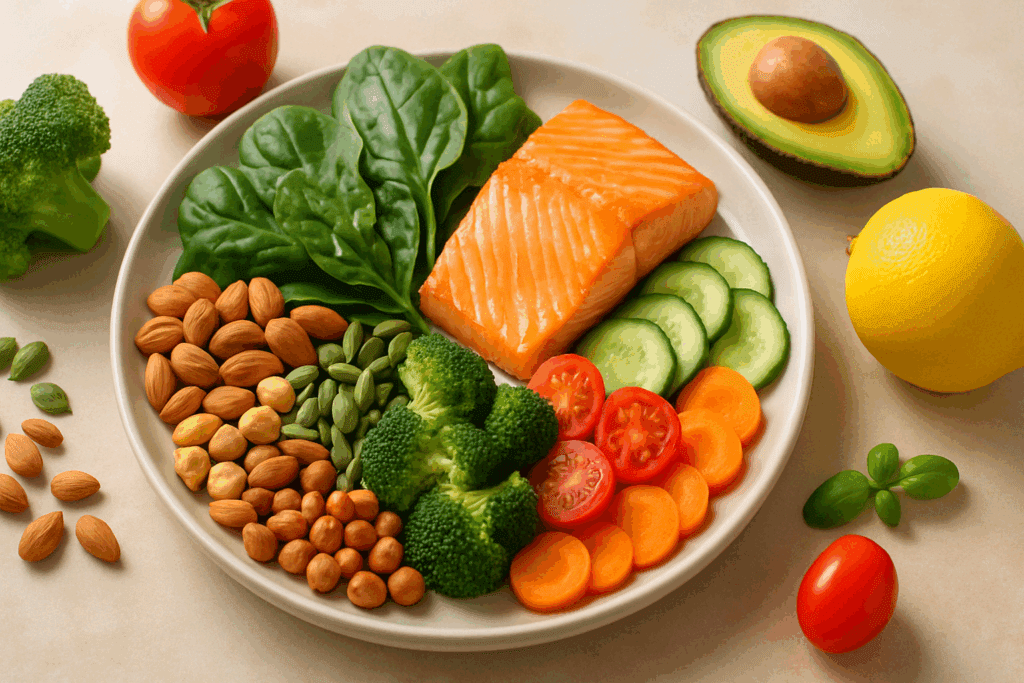
How Nutritional Deficiencies Impact Mental Wellness
Not getting enough of the right nutrients can be just as detrimental as consuming harmful ones. Several key vitamins and minerals are essential for maintaining emotional equilibrium, and deficiencies can mimic or aggravate symptoms of depression. Among the most critical are B vitamins—especially B6, B12, and folate—which play a role in neurotransmitter synthesis. A deficiency in these nutrients can impair serotonin and dopamine production, leading to low mood, fatigue, and difficulty concentrating.
Omega-3 fatty acids, particularly EPA and DHA, are another vital component of brain health. Found in fatty fish like salmon and mackerel, as well as in flaxseeds and walnuts, these fats reduce inflammation and support cognitive function. Low levels have been linked to higher rates of depression, especially in populations that consume little fish. Similarly, minerals like magnesium, zinc, and iron are involved in mood regulation, and inadequate intake can contribute to anxiety, lethargy, and irritability.
For individuals who find that eating anything makes me depressed, it’s important to consider whether the problem lies in what the diet lacks, not just what it includes. A simple blood test can often reveal nutritional deficiencies, and targeted supplementation or dietary adjustments may offer significant improvements in mood and energy levels.
The Psychological Component: Emotional Associations with Food
Beyond the biological mechanisms, our psychological relationship with food can deeply influence how we feel after eating. For some, meals are entangled with guilt, anxiety, or memories of past trauma. These emotional responses may be subconscious but can significantly affect post-meal mood.
Emotional eaters, for instance, may find themselves reaching for comfort foods in times of stress, only to feel worse afterward due to a combination of physiological responses and internalized shame. In cases of disordered eating or unresolved body image issues, even a normal meal can become a trigger for depressive thoughts. Cognitive behavioral therapy (CBT), mindfulness practices, and support from mental health professionals can help unravel these patterns and build healthier associations with food.
It’s also worth noting that modern culture often promotes conflicting messages about food—glorifying indulgence while simultaneously idealizing restriction. This dichotomy can create confusion and stress around eating, making it more difficult for individuals to tune into their body’s signals and respond in emotionally supportive ways.
Creating a Mood-Supportive Diet and Lifestyle
Healing the relationship between food and mood requires more than cutting out harmful foods—it involves cultivating a way of eating that nourishes both body and mind. This includes focusing on whole foods that provide sustained energy, support gut health, and deliver essential nutrients. Incorporating fiber-rich vegetables, lean proteins, healthy fats, and fermented foods like yogurt or kimchi can foster a balanced internal environment that supports emotional resilience.
Equally important is meal timing and structure. Skipping meals or eating erratically can destabilize blood sugar and increase vulnerability to mood swings. Regular, balanced meals that combine macronutrients—carbohydrates, proteins, and fats—can help maintain energy and support a stable mood throughout the day. Drinking plenty of water, limiting alcohol and caffeine, and getting adequate sleep and physical activity also play a crucial role.
Mindful eating—paying attention to hunger cues, savoring food, and eating without distraction—can reconnect individuals with their body’s signals and promote a more positive experience around meals. This approach reduces stress, improves digestion, and enhances satisfaction, which in turn can help mitigate the cycle of eating anything makes me depressed.
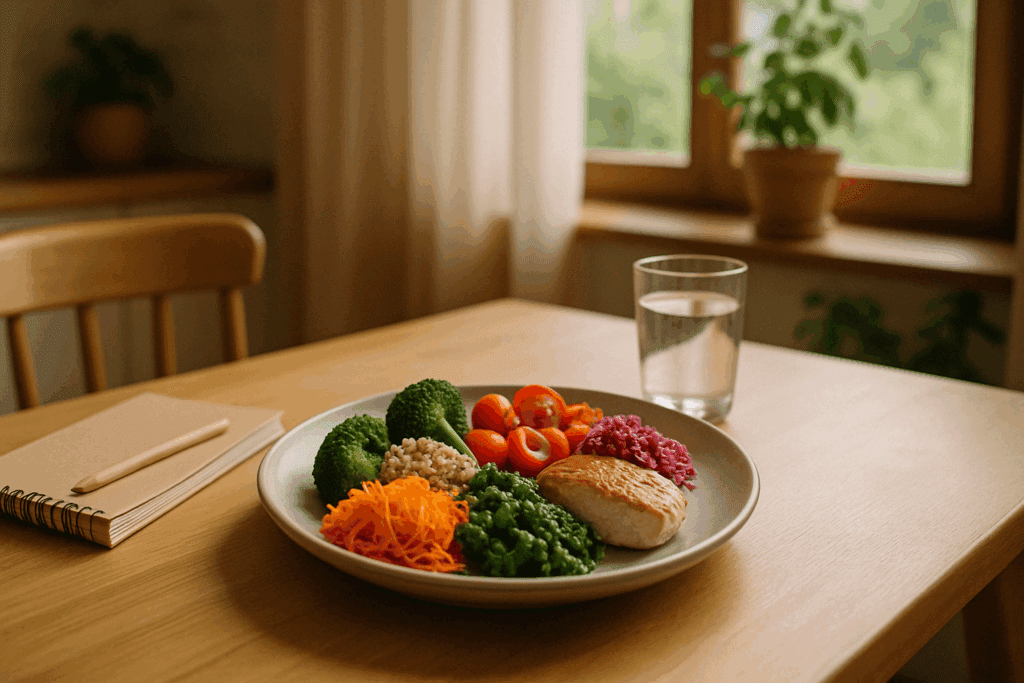
Finding the Right Support and Resources
If dietary changes alone don’t improve mood, or if symptoms worsen, it’s essential to seek support from healthcare professionals. Functional medicine practitioners, registered dietitians, and integrative mental health providers can help identify underlying issues, from food sensitivities to hormonal imbalances, and create personalized plans for healing. Mental health support is equally important, especially for those navigating chronic depression or anxiety. A collaborative approach that combines nutritional strategies with therapeutic modalities offers the most comprehensive path to recovery.
It’s also helpful to connect with community resources, support groups, or online forums where individuals share their experiences and coping strategies. Knowing you are not alone in experiencing food-related mood changes can be deeply validating and empowering. Education, compassion, and persistence are key in unraveling the complex web of factors that influence emotional health.
Frequently Asked Questions: Understanding Mood Changes After Eating and the Role of Food in Depression
Why do I feel a sudden emotional crash after eating, even when I’ve had a healthy meal?
Feeling emotionally low after a meal—even one that appears nutritious—can sometimes stem from underlying psychological triggers or physiological imbalances. For instance, if someone subconsciously associates food with guilt, control, or past trauma, even wholesome meals can result in distress or sadness. Biochemically, a post-meal serotonin dip or minor inflammatory response may also play a role, especially if gut health is compromised. When people say, “eating anything makes me depressed,” the culprit isn’t always the food itself but rather how the body and mind interpret that meal. Exploring personal food narratives through therapy and assessing digestive health with a healthcare provider can uncover root causes.
Can the timing of my meals affect whether or not I feel depressed afterward?
Yes, meal timing plays a significant role in emotional regulation. Skipping meals, eating too late in the day, or having irregular eating patterns can destabilize blood sugar, leading to mood swings or depressive symptoms. Individuals who report that eating anything makes me depressed may find that changing when they eat is just as crucial as changing what they eat. Stable meal timing helps regulate hormones like cortisol and insulin, which influence energy and mood. Intermittent fasting, while trendy, can backfire for those sensitive to blood sugar drops or with a history of mood disorders.
How do social and cultural factors influence the emotional response to eating?
Cultural conditioning around food can deeply affect how we feel post-meal. In cultures where food is moralized as “good” or “bad,” individuals may experience shame or self-criticism regardless of nutritional content. This emotional baggage can lead to a sense that eating anything makes me depressed, especially when internalized food rules conflict with actual dietary choices. Additionally, individuals who grew up in households with food scarcity, emotional eating, or diet culture may carry unresolved emotional patterns that surface after meals. Recognizing and unlearning these cultural scripts can improve the emotional aftermath of eating.
Are there specific combinations of nutrients that might trigger depression in sensitive individuals?
Yes, it’s not just individual foods that cause depression in some people—it can also be the combination and balance of nutrients consumed. Meals high in refined carbs but low in protein or healthy fats can lead to glucose spikes followed by crashes that trigger mood drops. In contrast, a protein-rich meal without sufficient fiber may disrupt digestion or gut-brain signaling. People who say eating anything makes me depressed may unknowingly be combining foods in a way that destabilizes neurotransmitter balance. Working with a registered dietitian to adjust macronutrient ratios can offer more predictable post-meal moods.
Could long-term dietary patterns affect how I react emotionally to meals today?
Absolutely. Your history of eating habits influences your current mental and metabolic state. Long-term reliance on ultra-processed foods that cause depression may damage the gut lining, alter microbiota composition, and desensitize dopamine receptors. This means that even when switching to a healthier diet, some people may still feel low after eating due to lingering physiological dysfunction. When someone states that eating anything makes me depressed, it may be a legacy effect of years of inflammation or nutritional imbalances. Healing takes time, and the effects of positive changes are often gradual but cumulative.
Are there any emerging treatments that address food-related mood disturbances?
Yes, nutritional psychiatry is an emerging field that combines dietary interventions with mental health care. Personalized nutrition plans are being integrated into mental health treatment, focusing not just on removing foods that cause depression but on actively incorporating those that support neurotransmitter production and reduce inflammation. Researchers are also exploring the use of prebiotics and psychobiotics—gut-friendly bacteria that directly influence mood. For individuals saying eating anything makes me depressed, these interventions may eventually offer targeted relief. Additionally, precision medicine approaches are beginning to incorporate genetic testing to assess individual responses to specific nutrients.
Can a food journal really help identify emotional triggers tied to meals?
Absolutely. A food and mood journal can be a powerful tool for identifying subtle patterns that contribute to the sense that eating anything makes me depressed. Unlike calorie tracking apps, a comprehensive journal includes emotional states before and after meals, sleep quality, stress levels, and digestive symptoms. Over time, this can reveal correlations between certain meals or ingredients and emotional outcomes. For example, some people may notice that foods that cause depression for them tend to be linked with specific situations, like eating under stress or alone. This awareness becomes the foundation for targeted behavioral or dietary changes.
What role does sleep play in the connection between diet and post-meal mood changes?
Sleep and diet are tightly interwoven in the mood equation. Poor sleep impairs the body’s ability to regulate glucose, produce neurotransmitters, and manage inflammation, all of which can intensify negative mood reactions after eating. Inadequate rest can make it more likely for people to say eating anything makes me depressed, even when food choices are otherwise supportive. Conversely, foods that cause depression may interfere with sleep, creating a vicious cycle. Stabilizing sleep hygiene can amplify the benefits of dietary interventions and reduce emotional volatility around meals.
Could anxiety or depressive disorders amplify emotional reactions to food?
Yes, individuals with pre-existing anxiety or depression are often more vulnerable to post-meal emotional shifts. Heightened sensitivity to physiological changes—such as bloating, fatigue, or blood sugar dips—can be misinterpreted as worsening mental health symptoms. This can reinforce the perception that eating anything makes me depressed, even when meals are balanced and nutritious. Moreover, some antidepressant medications may alter appetite, digestion, or taste perception, further complicating the emotional relationship with food. Working closely with both a therapist and a dietitian can help untangle these overlapping effects.
What is the long-term outlook for someone who feels depressed after eating?
The good news is that this experience is often reversible with the right support and lifestyle changes. While it may take time to uncover why certain foods that cause depression affect you personally, progress is achievable through holistic strategies. Emotional regulation techniques, gradual dietary modifications, and testing for food sensitivities can all contribute to symptom relief. For people who feel that eating anything makes me depressed, the journey involves addressing both psychological and physiological factors. With persistence and professional guidance, many individuals report a renewed ability to enjoy food without the emotional toll.
Reclaiming Your Mood: When Eating Shouldn’t Hurt Your Happiness
The idea that eating anything makes me depressed is not only emotionally distressing—it can erode quality of life and complicate basic self-care. But understanding the multifaceted relationship between food and mood opens the door to meaningful change. From gut health to nutrient intake, blood sugar stability to emotional awareness, the path to feeling better often begins on the plate.
Identifying and eliminating foods that cause depression, whether through inflammation, sensitivities, or nutrient deficiencies, is a critical first step. Equally important is creating a diet that supports mental wellness with whole, nourishing foods and lifestyle practices that reduce stress and promote balance. Healing takes time, but with the right knowledge and support, it is possible to transform your relationship with food into one that sustains both body and mind.
Whether you’re just beginning to explore why meals trigger emotional downturns or have long struggled with food-related mood issues, know that your experience is valid—and that solutions exist. By tuning into your body, seeking expert guidance, and embracing a holistic approach to nutrition and mental health, you can move toward a place where eating feels energizing, empowering, and emotionally uplifting once again.
Was this article helpful? Don’t let it stop with you. Share it right now with someone who needs to see it—whether it’s a friend, a colleague, or your whole network. And if staying ahead on this topic matters to you, subscribe to this publication for the most up-to-date information. You’ll get the latest insights delivered straight to you—no searching, no missing out.
Further Reading:
Food and mood: how do diet and nutrition affect mental wellbeing?

